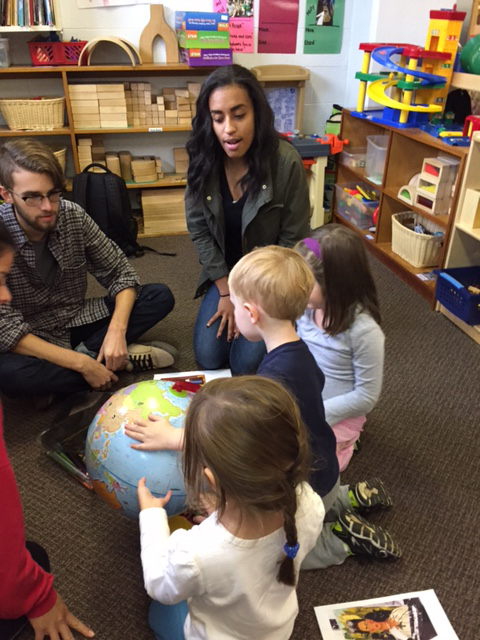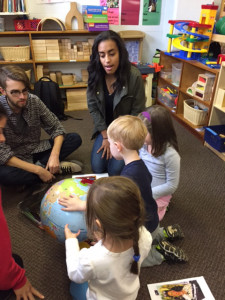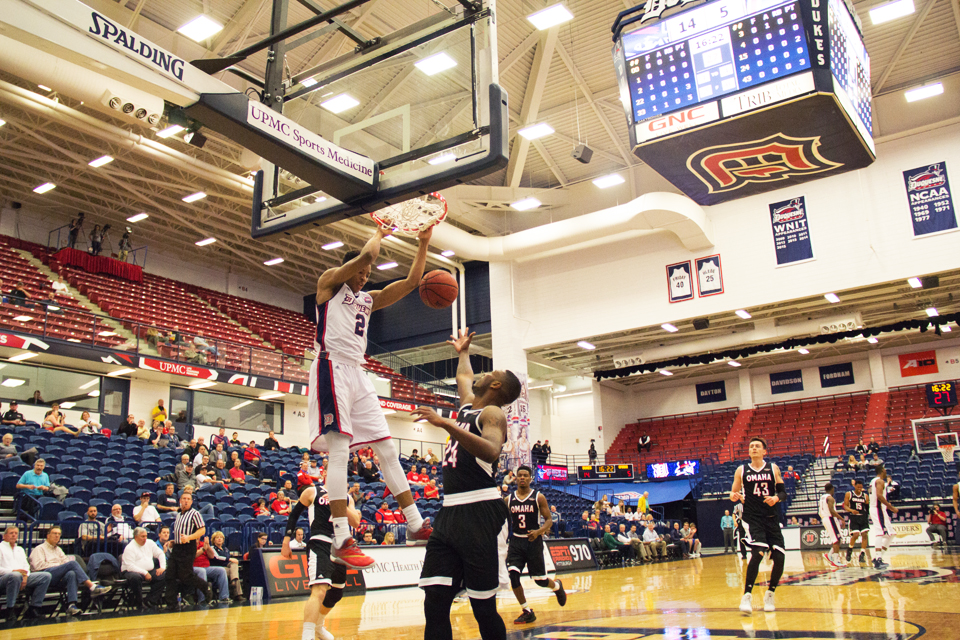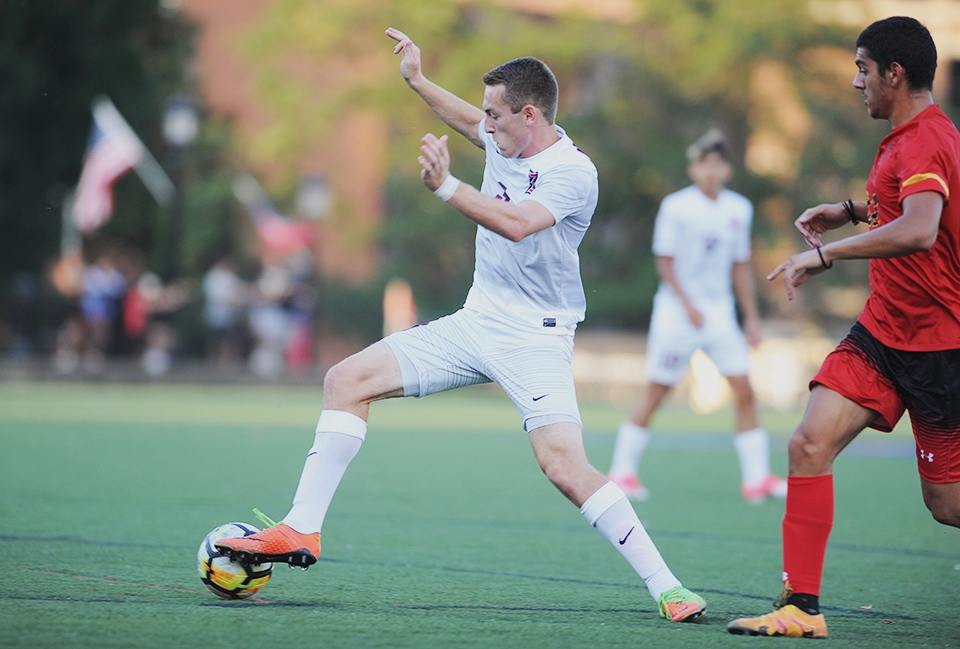

Duquesne Spanish students show local preschoolers the location of Spanish-speaking countries on a globe as part of a foreign language teaching program.
By Kailey Love | The Duquesne Duke
For an advanced college Spanish class, Lucia Osa-Melero and her students spend a lot of time with preschoolers.
The Northeast Conference on the Teaching of Foreign Languages recently named Duquesne language professor Lucia Osa-Melero as one of three Mead Leadership Fellows for her work connecting college students with preschoolers to help both parties learn Spanish.
According to Osa-Melero, her classes go beyond the typical grammar and vocabulary lessons associated with foreign language instruction. She believes students can master a language through teaching it to others.
As a part of her upper-level Spanish class, Spanish Conversation and Composition, Osa-Melero created the program Niños y Niñas Bilingües y Biculturales, which translates to Bilingual and Bicultural Boys and Girls. This program pairs her 28 students, mainly Spanish majors or minors, with preschool children from the YMCA Duquesne Child Development Center in the bottom of Towers and Beechwood Elementary.
Osa-Melero has a daughter enrolled in the Duquesne YMCA center, and she noticed how easily her daughter’s classmates there were able to pick up on the few Spanish phrases she used with her daughter. She then paired this observation with a learning-through-teaching method developed by Russian psychologist Lev Vygotsky in the 19th century.
“[Vygotsky wrote] that to be able to really have full domain of any type of knowledge, you must teach it,” Osa-Melero said. “And everyone who is teaching must teach their students how to teach. I believe in that.”
According to Osa-Melero, seven is the “magical age” for obtaining an almost-native pronunciation and for being able to use another language with ease. After the age of seven, the brain becomes much more rigid and cannot retain the information as easily.
Osa-Melero said the mini Spanish lessons her students teach to the preschoolers are popular with the young students.
“It’s a game for them,” Osa-Melero said. “It’s fun. At this age, their brains are like sponges — they just absorb information and don’t realize that they’re learning it. We have to take advantage of that.”
The college students take time preparing lesson plans that include simple Spanish phrases and vocabulary to teach the younger children, and travel to the preschools four times in a semester to teach.
Sophomore education major Kayla Kerila called the class “a phenomenal experience.”
“The most rewarding part of the project was when [Osa-Melero] came over and asked the students to tell her what they learned and they explained it to her so well — even using the Spanish words!” Kerila said.
While the children at YMCA Duquesne are mostly English-speakers, several preschoolers at Beechwood elementary are native Spanish-speakers.
“One of my favorite stories from working at Beechwood was with a girl in my group, Emmy, [who] was very quiet,” said Maggie Elias, a sophomore education and history major minoring in Spanish. “I was speaking to her in Spanish at one point, and out of the blue, she corrected me on something I had said! Needless to say, I was able to learn a lot from Emmy.”
Along with teaching and speaking to the preschoolers in Spanish, Osa-Melero’s students teach them about the cultures of Spanish-speaking countries. They research cultural topics and countries to share with the children, and even reach out to people living in these countries to better understand the material.
The next lesson Osa-Melero’s current students are preparing is teaching the children the cultural differences between Valentine’s Day in the United States and Spanish-speaking countries.
With the recognition that she received from her fellowship, Osa-Melero plans to expand this program into the Pittsburgh public school system.




